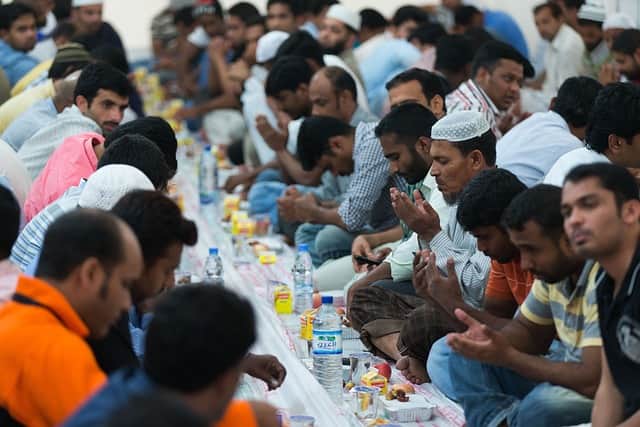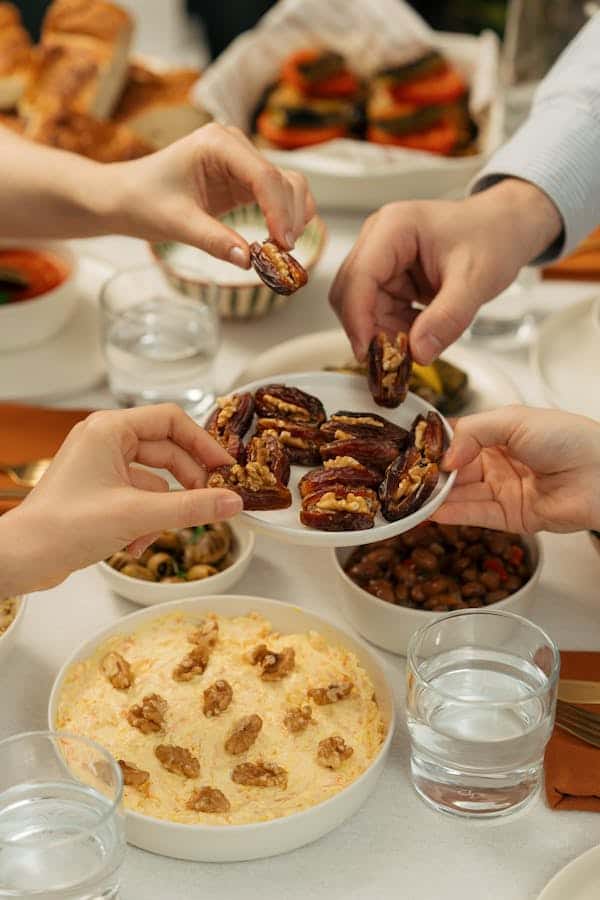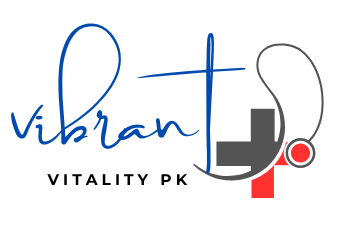The Ramadan Diet: Nourishing the Body and Soul through 5 Super Foods
Ramadan Diet

Introduction
A Ramadan diet should focus on providing the necessary nutrients to nourish the body while respecting the principles of fasting. A Ramadan diet should incorporate a variety of foods from different food groups is crucial to ensure a well-rounded intake of essential nutrients.
Scientifically and medically, Ramadan Diet helps in maintaining higher standards of human health owing to certain advantages like control blood pressure, facilitate in healthy weight loss, beneficial for heart and brain health, improve insulin sensitivity and increase overall immunity.
By consuming carbohydrates, proteins, healthy fats, fruits, and vegetables in appropriate quantities as Ramadan diet, individuals can maintain a healthy lifestyle while observing the fast.

The concept of fasting and Ramadan diet during the holy month of Ramadan is deeply intertwined with Islamic traditions and serves as a means of spiritual refinement and self-discipline for millions of Muslims worldwide.
As devout followers abstain from food and drink from dawn until sunset, maintaining a balanced and nutritious diet becomes essential to sustain energy levels and overall well-being during this period.
This article will strive to explore the importance of an appropriate Ramadan diet and the key considerations when planning meals during this sacred month.
It is important to note that moderation is a key to maintaining a healthy Ramadan diet. Overindulging in fried, sugary, and processed foods can lead to weight gain and adverse health effects.
Opting for grilled or baked options instead of deep-fried foods, reducing sugar intake, and consuming fresh fruits and vegetables are beneficial choices for a well-rounded and healthier Ramadan diet.
5 Super Foods in Ramadan Diet
Let’s delve into the significance of a well-balanced diet during Ramadan. Fasting from dawn to sunset can be physically demanding, and it is crucial to provide the body with essential nutrients when it comes time to break the fast.
A properly balanced diet ensures that the body receives the required energy, vitamins, and minerals to function optimally. Let’s explore the benefits of incorporating five super foods into your Ramadan diet.

Dates and Water for Hydration
Iftar (the meal to break the fast) traditionally begins with dates and water, following the example set by the Prophet Muhammad PBUH. Dates provide a quick source of energy due to their natural sugars, and water helps rehydrate the body after a day of fasting. It is advisable to include a balance of carbohydrates, proteins, and healthy fats in the iftar meal.
The super food that can prove beneficial during Ramadan is dates. Dates are nutritional powerhouses, rich in fiber, vitamins, and minerals.
They provide a natural source of energy, and their high fiber content aids in digestion, preventing constipation – a common issue during fasting. Including dates in your Ramadan diet helps in maintaining a healthy gastrointestinal system.
Ensuring adequate hydration is of utmost importance during Ramadan. Water, as well as other hydrating fluids such as herbal teas and natural juice, must be consumed during non-fasting hours to replenish fluids lost throughout the day. Hydration is essential to prevent dehydration and maintain proper bodily functions.
Almonds and Whole Grains
Other super foods to consider adding to Ramadan diet are almonds and whole grains. Almonds are packed with protein, healthy fats, and fiber. They offer a great source of sustained energy, helping stay satisfied during fasting hours.
Almonds also contain essential nutrients such as vitamin E and magnesium, which support overall health and reduce the risk of diseases like heart ailments and diabetes.
During Suhoor (pre-dawn meal), it is recommended to consume slow-digesting foods such as whole grains, legumes, and proteins.
These foods release energy gradually and provide a sustained feeling of fullness throughout the fasting period. Including fiber-rich foods helps regulate digestion and prevent constipation, a common concern during Ramadan.

Leafy Green Vegetables
Adding leafy green vegetables like spinach and kale to diet can do wonders for your overall well-being during Ramadan. These super foods are rich in antioxidants, iron, and vitamins A and K.
They provide essential nourishment and promote healthy skin, improved digestion, and enhanced immune function. Including these greens in Iftar and Suhoor meals can provide with the nutrients your body needs to stay healthy and resilient throughout Ramadan.
Turmeric
Turmeric, a vibrant yellow spice with numerous health benefits, is an excellent addition to Ramadan diet. Curcumin, an anti inflammatory and antioxidant compound makes it even more effective. Curcumin helps reduce inflammation in the body, supports healthy digestion, and strengthens the immune system. Incorporating turmeric into meals adds flavor while offering immense health advantages.
Chia Seeds
The inclusion of chia seeds in Ramadan diet can greatly contribute to overall well-being. Chia seeds are abundant in omega 3 fatty acids, proteins and fibers. These tiny seeds provide sustained energy, promote satiety, and aid in proper digestion. Moreover, their high omega-3 content supports heart health and helps reduce inflammation.
In addition to physical nourishment, a Ramadan diet should also consider the spiritual aspect of fasting. Muslims believe that fasting fosters empathy and gratitude for those less fortunate. A mindful and grateful approach towards food is encouraged, as wasting and excessive consumption contradict the essence of Ramadan.
Planning meals in advance and incorporating time for physical activity are crucial components of a successful Ramadan diet. Although fasting may cause temporary changes in meal timings, it is essential to ensure a balanced diet and maintain a regular exercise routine to promote overall health and well-being.
Conclusion
In conclusion, incorporating five super foods into Ramadan diet can significantly enhance overall health and well-being during this holy month. The benefits of including dates, almonds, leafy green vegetables, turmeric, and chia seeds are numerous, ranging from sustained energy levels, improved digestion, boosted immune function, and reduced inflammation.
By making informed food choices and prioritizing nutritious options, one can optimize one’s fasting experience and maintain vitality throughout Ramadan.
A well-planned Ramadan diet is essential to support physical health and spiritual growth during the holy month. By following a balanced and nutritious eating regimen, Muslims can maintain their energy levels, optimize their nutritional intake, and reap the benefits of fasting.
Combining wholesome foods, hydration, portion control, and mindfulness, individuals can strive towards nourishing both their bodies and souls during this sacred time of Ramadan.
Remember, the key is to strike a balance in diet; ensuring one should receive all the necessary nutrients while abstaining from food during daylight hours. By doing so, one can make the most out of this spiritually rewarding month while nurturing the body with the nourishment it needs.
References
1. Alkaabi, J. M., Al-Dabbagh, B., Ahmad, S., Saadi, H. F., Gariballa, S., & Ghazali, M. A. H. (2011). Glycemic indices of five varieties of dates in healthy and diabetic subjects. Nutrition Journal, 10(59).
2. Shishir, M. R. I., & Rahman, M. M. (2020). Nutritional and Health Benefits of Almonds. South Asian Journal of Agriculture, 13(1-2), 73-82.
3. Ortega, R. M., & López-Sobaler, A. M. (2019). Chia Seeds: Nutritional and Comparative Aspects. In Nuts and Seeds in Health and Disease Prevention (pp. 619-629). Academic Press.
FAQs
What is purpose of Ramadan fasting?
Spiritual and physical cleansing
What are the benefits of Ramadan fasting?
Ramadan Diet helps in maintaining higher standards of human health owing to certain advantages like control blood pressure, facilitate in healthy weight loss, beneficial for heart and brain health, improve insulin sensitivity and increase overall immunity.
Does everyone can keep fast?
Yes. Majority of people around the globe keep fasts for physical as well as mental relaxation along with 2 billion muslims around the world. Intermittent fasting, portion control , keto diets and other eating regimens are similar to it.






